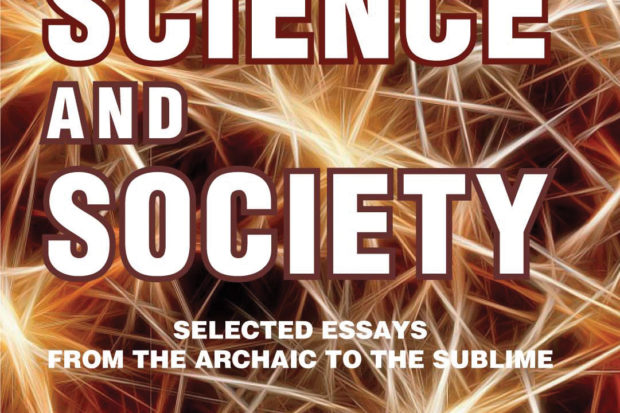
By Dr. James Ciula
Science and Society: Selected Essays from the Archaic to the Sublime edited by Dr. Alexander Vavoulis and Dr. A. Wayne Colver, The Press at California State University, Fresno, 2019, 2nd edition, $25 paperback.
Human society started developing as people began collecting into tribes and then larger conglomerations of people. Societal norms were necessarily evolving into societies to preserve the order and harmony among the many individuals.
As societies grew, so did their observations of the world around them, and they started associating with phenomena that occurred. In many societies, one of the first observational areas was astronomy—observing the sky to be able to know when to carry out the functions of living, such as the planting of crops and harvesting.
Many old societies, in fact, left behind structures presumed to be observatories and celestial calendars marking the important times of the year.
As this “science” evolved, calendars to measure time were developed, such as the famous Inca calendar. Thus, societies have used the observation of phenomena from the beginning of time to be able to survive in the natural world.
As society developed, so did the extent of observing the natural world, and rudimentary science can be assumed as coming into being. What Professors Vavoulis and Colver have done in this book is to carefully collect and select essays, from scholars in diverse fields, ranging from psychology and physics to philosophy and history, including some of the giants from their areas such as Polanyi and Schroedinger.
The essays are assembled to provide a brief history of the development of scientific thought evolving with the growth of society. This second edition makes an important contribution to this subject. This evolving process is discussed in detail in C.G. Jung’s book, Modern Man in Search of His Soul.
*****
Dr. James Ciula is a lecturer in the Chemistry Department at Fresno State. Contact him at jciula@csufresno.edu.
